Risk: Retrospective Lessons & Prospective Strategies Speakers
From Santa Fe Institute Events Wiki
SFI ACtioN Topical Meeting
Co-organzied by Morgan Stanley
October 4, 2018
Venue: Morgan Stanley Global Headquarters, 1585 Broadway, New York, NY 10036
Panelists & Moderators Include:
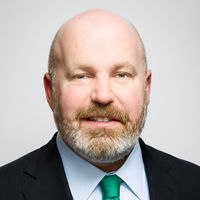
AQR Capital Management
Cliff Asness is a Founder, Managing Principal, and Chief Investment Officer at AQR Capital Management. He is an active researcher and has authored articles on a variety of financial topics for many publications, including The Journal of Portfolio Management, Financial Analysts Journal and The Journal of Finance. He has received five Bernstein Fabozzi/Jacobs Levy Awards from The Journal of Portfolio Management, in 2002, 2004, 2005, 2014 and 2015. Financial Analysts Journal has twice awarded him the Graham and Dodd Award for the year’s best paper, as well as a Graham and Dodd Excellence Award, the award for the best perspectives piece, and the Graham and Dodd Readers’ Choice Award. In 2006, CFA Institute presented Cliff with the James R. Vertin Award, which is periodically given to individuals who have produced a body of research notable for its relevance and enduring value to investment professionals. Prior to cofounding AQR Capital Management, he was a managing director and director of quantitative research for the Asset Management Division of Goldman, Sachs & Co. He is on the editorial board of The Journal of Portfolio Management, the governing board of the Courant Institute of Mathematical Finance at NYU, the board of directors of the Q-Group and the board of the International Rescue Committee. Cliff received a B.S. in economics from the Wharton School and a B.S. in engineering from the Moore School of Electrical Engineering at the University of Pennsylvania, graduating summa cum laude in both. He received an M.B.A. with high honors and a Ph.D. in finance from the University of Chicago, where he was Eugene Fama’s student and teaching assistant for two years (so he still feels guilty when trying to beat the market).

University of California
Rick Bookstaber is the author of The End of Theory (2017, Princeton University Press), which critiques the applicability of economics in dealing with financial crises, and proposes an alternative paradigm using agent-based models. He is also the author of A Demon Of Our Own Design (2007), a book highlighting the fragility of the financial system that occurs from tight coupling and complexity. The book is noted for its foreshadowing of the financial crisis of 2007–08.
He has worked in risk management with chief risk officer roles on both the buy-side at Moore Capital and Bridgewater, and on the sell-side at Morgan Stanley and Salomon, and from 2009 to 2015 he served in the public sector at the SEC and the U.S. Treasury, drafting the Volcker Rule, building out the risk management structure for the Financial Stability Oversight Council, and developing an agent-based model to assess financial vulnerabilities.
Currently, he is the Chief Risk Office for the Office of the CIO at the University of California, overseeing their $110 billion pension and endowment portfolios. In this role he is continuing to apply agent-based models for risk management.
He received a Ph.D. in economics from MIT. He is currently working on a book that looks at the rise and fall of civilizations through the lens of complexity.

CalTech
Colin Camerer is a pioneer in behavioral economics and in neuroeconomics. He is interested in how psychological forces and their deeper neuroscientific foundations influence economic decisions involving individuals and markets. In his research, he uses experiments to better understand how individuals and markets function, neuroscience to gain insight into the neuroscientific drivers for decision making and behavior, and game theory. For example, he's exploring why price bubbles form, when they crash, and how people value immediate and future rewards and costs—especially those that create temptation. He wants to understand strategic situations such as when other people's choices affect an individual and how someone anticipates what others will do.
Camerer was on the faculty of the Graduate School of Business at the University of Chicago from 1991 to 1994, the Wharton School of the University of Pennsylvania from 1983 to 1991, and the Kellogg Graduate School of Business at Northwestern University from 1981 to 1983. He was a visiting fellow at Stanford University from 1997 to 1998, a visiting scholar at the Russell Sage Foundation between 1991 and 1992, and a visiting professor of business at Caltech in 1987.
He is a member of the American Academy of Arts and Sciences (2003), a fellow of the Econometric Society (1993), and a fellow of the Society for the Advancement of Economic Theory (2011). He was president of the Society for Neuroeconomics (2005–2006) and president of the Economic Science Association (2001–2003). Since 2007, he has been a chair of the Russell Sage Foundation Behavioral Economics Roundtable. He has one patent accepted on "Active Learning Decision Engines." He is on editorial boards for numerous journals. In 2013, he was named a MacArthur Fellow.

University of Washington
Pedro Domingos is a professor of computer science and engineering at the University of Washington and the author of 'The Master Algorithm'. He is a winner of the SIGKDD Innovation Award, the highest honor in data science, and a AAAI Fellow. Pedro has received an NSF CAREER Award, a Sloan Fellowship, a Fulbright Scholarship, an IBM Faculty Award, several best paper awards, and other distinctions. Pedro received his undergraduate degree (1988) and M.S. in Electrical Engineering and Computer Science (1992) from IST, in Lisbon, and an M.S. (1994) and Ph.D. (1997) in Information and Computer Science from the University of California at Irvine. He spent two years as an assistant professor at IST, before joining the faculty of the University of Washington in 1999. Pedro is the author or co-author of over 200 technical publications in machine learning, data mining, and other areas. He is a member of the editorial board of the Machine Learning journal, co-founder of the International Machine Learning Society, and past associate editor of JAIR. Pedro was also program co-chair of KDD-2003 and SRL-2009, and has served on the program committees of AAAI, ICML, IJCAI, KDD, NIPS, SIGMOD, UAI, WWW, and others.
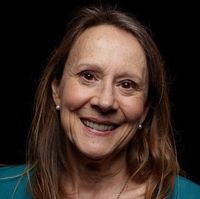
Way to Wellville &
Santa Fe Institute
Esther Dyson is the executive founder of Way to Wellville, a 10-year, five-community nonprofit project devoted to implementing, illustrating and modeling the beneficial impacts, both social and financial, of investing in health (vs. renting it and attempting to retrieve it via health care). Dyson is also an active tech investor, based on 30-odd years in the sector. From 1997 to 2012, she was a loving trustee of the Santa Fe Institute.
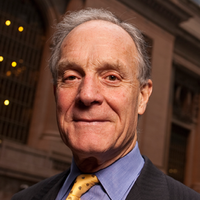
Greenwich Associates &
Wealthfront
Charley Ellis is the founder of Greenwich Associates, the leading research-based strategy consulting firm to the financial services industry, and a member of the advisory board at Wealthfront. Charley has written 16 books on individual investing, including the classic Winning the Loser’s Game.
Charley chaired the CFA Institute, served on the faculty of Harvard Business School and the Yale School of Management, and chaired the investment committee at Yale University. Yale, led by its Chief Investment Officer, David Swensen, is viewed by many as the best large diversified portfolio manager in the world. Charley also served on the Vanguard Group board of directors for almost a decade.
Among Charley’s books is The Elements of Investing, which is considered one of the simplest, clearest books about investing ever written.
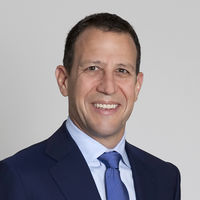
BlueMountain Capital Management
Andrew Feldstein is BlueMountain’s Co-Founder and Chief Investment Officer. Mr. Feldstein is the Chair of the Firm’s Management and Investment Committees and a member of the Risk Committee. Prior to co-founding BlueMountain in 2003, Mr. Feldstein spent over a decade at J.P. Morgan where he was a Managing Director and served as Head of Structured Credit; Head of High Yield Sales, Trading and Research; and Head of Global Credit Portfolio. Mr. Feldstein is a member of the board of directors of PNC Financial Services Group Inc. He is also a Trustee of Third Way, a public policy think tank; a Trustee of the Santa Fe Institute, an independent research and education center; and a member of the Harvard Law School Leadership Council. Mr. Feldstein earned a J.D. from Harvard Law School and a B.A. from Georgetown University.

Santa Fe Institute
Jessica Flack is a professor at the Santa Fe Institute and the director of SFI's Collective Computation Group (C4). Research in C4 draws on evolutionary theory, cognitive science and behavior, statistical mechanics, information theory, and theoretical computer science to study information processing and collective computation in nature and their roles in emergence of robust structure and function in biological and social systems. Flack works on fundamental problems in evolutionary theory concerning collective computation & information aggregation at all levels of biological organization—from societies of cells to societies of individuals to machine-human hybrid societies. This includes the role of collective computation in the origin of space and time scales in adaptive systems. A central idea is that noisy information processors in adaptive systems construct their macroscopic worlds through collective coarse-graining in evolutionary and/or learning time. Flack was previously the founding director of University of Wisconsin-Madison's Center for Complexity and Collective Computation in the Wisconsin Institutes for Discovery. Flack's work has been covered by scientists and science journalists in many publications and media outlets, including the BBC, NPR, Nature, Science, The Economist, New Scientist, Current Biology, The Atlantic, and Quanta Magazine.
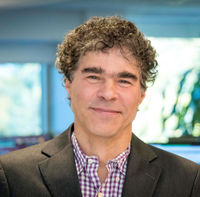
Yale University
John Geanakoplos received his B.A. in Mathematics from Yale University in 1975 (summa cum laude), his M.A. in Mathematics and his Ph.D. in Economics under Kenneth Arrow and Jerry Green from Harvard University in 1980. He started as an Assistant Professor in Economics at Yale University in 1980, becoming an Associate Professor in 1983, Professor in 1986, and the James Tobin Professor of Economics in 1994. From 1996-2005 he was Director of the Cowles Foundation for Research in Economics. He was a co-founder in 1992, and is still currently co-director, of the Hellenic Studies Program at Yale. He was elected a fellow of the Econometric Society in 1990 and of the American Academy of Arts and Sciences in 1999. He was awarded the Samuelson Prize in 1999, and was awarded the first Bodossaki Prize in economics in 1994 (for the best economist of Greek heritage under 40). In 1990-1991 and again in 1999-2000 he directed the economics program at the Santa Fe Institute, where he remains an external professor and chairman of the Science Steering Committee. He spent terms as visiting professor at MSRI in the University of California, Berkeley, at Churchill College, Cambridge, at the University of Pennsylvania, at Harvard, at Stanford, and at MIT. From 1990-1994 he was a Managing Director and Head of Fixed Income Research at Kidder, Peabody & Co. He was one of the founding partners in 1995 of Ellington Capital Management, where he remains a partner. In 1970 he won the United States Junior (< 20) Open Chess Championship. One of his current research topics is the leverage cycle.

Benchmark
Bill Gurley has spent 18 years as a General Partner at Benchmark, joining in 1999. Over his venture career, he has invested in and served on the board of such companies as Jamdat (IPO: JMDT, Acq. by EA), GrubHub (IPO: GRUB), Nextdoor, OpenTable (IPO: OPEN, Acq.by Priceline), Stitch Fix, Uber, and Zillow.com (IPO: Z). Before entering the venture capital business, Bill spent four years on Wall Street as an “Institutional Investor” ranked research analyst, including three years at CS First Boston. He also worked as the lead analyst on Amazon's IPO. Prior to his finance career, he worked as a computer engineer at Compaq in Houston. Bill received his BS in computer science from the University of Florida, and an MBA from the University of Texas. He is also a Chartered Financial Analyst. He and his wife are active supporters of the Opportunity Fund and KIPP Bay Area. Bill also maintains a blog on the evolution and economics of high technology businesses called Above the Crowd, and can be followed on Twitter at @bgurley.

Princeton University
Daniel Kahneman is Professor of Psychology and Public Affairs Emeritus at the Woodrow Wilson School, the Eugene Higgins Professor of Psychology Emeritus at Princeton University, and a fellow of the Center for Rationality at the Hebrew University in Jerusalem. Dr. Kahneman has held the position of professor of psychology at the Hebrew University in Jerusalem (1970-1978), the University of British Columbia (1978-1986), and the University of California, Berkeley (1986-1994). Dr. Kahneman is a member of the National Academy of Science, the Philosophical Society, the American Academy of Arts and Sciences and a fellow of the American Psychological Association, the American Psychological Society, the Society of Experimental Psychologists, and the Econometric Society. He has been the recipient of many awards, among them the Distinguished Scientific Contribution Award of the American Psychological Association (1982) and the Grawemeyer Prize (2002), both jointly with Amos Tversky, the Warren Medal of the Society of Experimental Psychologists (1995), the Hilgard Award for Career Contributions to General Psychology (1995), the Nobel Prize in Economic Sciences (2002), the Lifetime Contribution Award of the American Psychological Association (2007), and the Presidential Medal of Freedom (2013). Dr. Kahneman holds honorary degrees from numerous Universities.
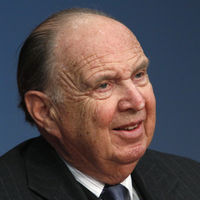
Henry Kaufman & Company
Henry Kaufman is President of Henry Kaufman & Company, Inc., a firm established in April 1988, specializing in economic and financial consulting. For the previous 26 years, he was with Salomon Brothers Inc., where he was Managing Director, Member of the Executive Committee, and in charge of the Firm’s four research departments. He was also a Vice Chairman of the parent company, Salomon Inc. Before joining Salomon Brothers, Dr. Kaufman was in commercial banking and served as an economist at the Federal Reserve Bank of New York.
Dr. Kaufman, who was born in 1927, received a B.A. in economics from New York University in 1948, an M.S. in finance from Columbia University in 1949, and a Ph.D in banking and finance from New York University Graduate School of Business Administration in 1958. He also received an honorary Doctor of Laws degree from New York University in 1982, and an honorary Doctor of Humane Letters degree from Yeshiva University in 1986, and from Trinity College in 2005. Dr. Kaufman’s latest book, The Road to Financial Reformation, was published in August 2009.
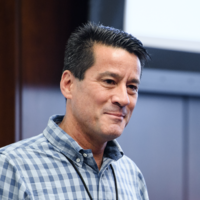
University of Pennsylvania
Michael Kearns is a computer scientist, professor and National Center Chair at the University of Pennsylvania, the founding director of Penn's Singh Program in Networked & Social Systems Engineering (NETS), and the founding director of the Warren Center for Network and Data Sciences. He also holds secondary appointments in Penn's Wharton School and Department of Economics. He is a leading researcher in computational learning theory and algorithmic game theory, and interested in machine learning, artificial intelligence, computational finance, algorithmic trading, computational social science and social networks.
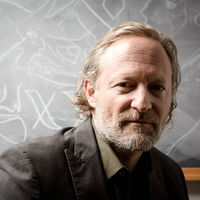
Santa Fe Institute
David Krakauer's research explores the evolution of intelligence on earth. This includes studying the evolution of genetic, neural, linguistic, social and cultural mechanisms supporting memory and information processing, and exploring their shared properties. He served as the founding Director of the Wisconsin Institute for Discovery, the Co-Director of the Center for Complexity and Collective Computation, and Professor of mathematical genetics all at the University of Wisconsin, Madison. David has been a visiting fellow at the Genomics Frontiers Institute at the University of Pennsylvania, a Sage Fellow at the Sage Center for the Study of the Mind at the University of Santa Barbara, a long-term Fellow of the Institute for Advanced Study in Princeton, and visiting Professor of Evolution at Princeton University. In 2012 Dr. Krakauer was included in the Wired Magazine Smart List as one of 50 people "who will change the World.” In 2016 Krakauer was included in Entrepreneur Magazine’s visionary Leaders advancing global research and business.
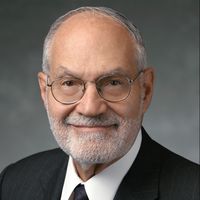
Morgan Stanley
Martin L. Leibowitz is the Vice Chairman of the Morgan Stanley Research Department’s global strategy team. Over the past eight years, he and his associates have produced a series of studies on such topics as asset allocation, policy portfolios, rebalancing strategies, and asset/liability management.
Prior to joining Morgan Stanley, Mr. Leibowitz was vice chairman and chief investment officer of TIAA-CREF from 1995 to 2004, with responsibility for the management of over $300 billion in equity, fixed income, and real estate assets. Previously, he had a 26-year association with Salomon Brothers where he became director of global research, covering both fixed income and equities, and was a member of that firm’s Executive Committee.
Mr. Leibowitz received both A.B. and M.S. degrees from The University of Chicago and a Ph.D. in mathematics from the Courant Institute of New York University.
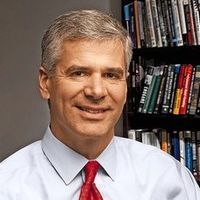
BlueMountain Capital Management
Michael J. Mauboussin is Director of Research at BlueMountain Capital Management in New York. Prior to joining BlueMountain in July of 2017, he was a Managing Director and Head of Global Financial Strategies at Credit Suisse. Before rejoining Credit Suisse, he was Chief Investment Strategist at Legg Mason Capital Management from 2004-2012. Mr. Mauboussin originally joined Credit Suisse in 1992 as a packaged food industry analyst and was named Chief U.S. Investment Strategist in 1999. He is a former president of the Consumer Analyst Group of New York and was repeatedly named to Institutional Investor's All-America Research Team and the Wall Street Journal All-Star survey in the food industry group.
Mr. Mauboussin is the author of The Success Equation: Untangling Skill and Luck in Business, Sports and Investing," and "Think Twice: Harnessing the Power of Counterintuition, and More Than You Know: Finding Financial Wisdom in Unconventional Places-Updated and Expanded. He is also co-author, with Alfred Rappaport, of Expectations Investing: Reading Stock Prices for Better Returns.
Mr. Mauboussin has been an adjunct professor of finance at Columbia Business School since 1993 and is on the faculty of the Heilbrunn Center for Graham and Dodd Investing. He earned an A.B. from Georgetown University.

Vanity Fair
Bethany McLean is an American journalist who is a contributing editor to Vanity Fair magazine, and known for her work on the Enron scandal and the 2008 financial crisis. She had been an editor-at-large and columnist for Fortune and a contributor to Slate.
McLean is the co-author, with Fortune colleague Peter Elkind, of The Smartest Guys in the Room, exposing the corrupt business practices of Enron officials. The book was the result of her reporting on Enron for the magazine and she first wrote about Enron with her article in the March 5, 2001 issue of Fortune entitled, "Is Enron Overpriced?". The book was later made into the Academy Award nominated documentary Enron: The Smartest Guys in the Room.
She also co-authored a book with New York Times columnist Joe Nocera on the 2008 financial crisis titled All the Devils Are Here. It details what happened and concludes it was not an accident, that banks understood the big picture before the crisis happened but continued with bad practices. In September 2015, she published Shaky Ground: The Strange Saga of the U.S. Mortgage Giants which examines the governance and financial situation of Fannie Mae and Freddie Mac seven years after the 2008 financial crisis.
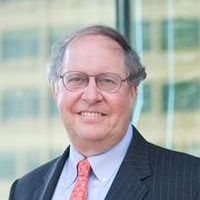
Miller Value Partners &
Santa Fe Institute
Bill Miller is the Chairman and Chief Investment Officer of Miller Value Partners, LLC and is the Portfolio Manager for MVP1, LP. During his tenure as sole manager of the Legg Mason Value Trust, its performance exceeded its S&P 500 benchmark index for 15 consecutive years. He was named Fund Manager of the Year in 1998 by Morningstar, The Greatest Money Manager of the 1990s by Money magazine, selected as Fund Manager of the Decade by Morningstar.com, was named by Barron’s to its All-Century Investment Team (1999), and received the Sauren Golden Award in 2015.
Bill was the director of research for Legg Mason from October 1981 through June 1985, and assumed overall responsibility for Legg Mason’s equity funds management division in 1990. Prior to joining Legg Mason in 1981, he served as treasurer of the JE Baker Company, a major manufacturer of products for the steel and cement industries.
Bill earned his economics degree from Washington and Lee University where he graduated with honors in 1972. Subsequent to graduation, he served as a military intelligence officer overseas and then pursued graduate studies in philosophy in the PhD program at The Johns Hopkins University. He received his CFA designation in 1986. Mr. Miller is Chairman Emeritus of the Board of Trustees of the Santa Fe Institute where he served as chairman from 2005 to 2009.
A long-time supporter of the Santa Fe Institute, Bill established the Miller Omega Fund in 2016.
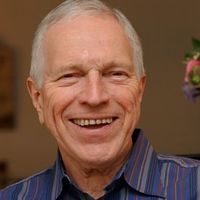
Columbia University
Edmund Phelps, the winner of the 2006 Nobel Prize in Economics, is Director of the Center on Capitalism and Society at Columbia University. Born in 1933, he spent his childhood in Chicago and, from age six, grew up in Hastings-on Hudson, N.Y. He attended public schools, earned his B.A. from Amherst (1955) and got his Ph.D. at Yale (1959). After a stint at RAND, he held positions at Yale and its Cowles Foundation (1960 - 1966), a professorship at Penn and finally at Columbia in 1971. He has written books on growth, unemployment theory, recessions, stagnation, inclusion, rewarding work, dynamism, indigenous innovation and the good economy.
His work can be seen as a lifelong project to put “people as we know them” into economic theory. In the mid-‘60s to the early ‘80s, beginning with the “Phelps volume,” Microeconomic Foundations of Employment and Inflation Theory (1970), he pointed out that workers, customers and companies must make many decisions without full or current information; and they improvise by forming expectations to fill in for the missing information. In that framework, he studied wage-setting, mark-up rules, slow recoveries and over-shooting. This served to underpin Keynesian tenet that say a cut in the money supply will not merely cause prices and wages to drop with no prolonged effect on employment.
From the mid-‘80s to the late ‘90s, he put aside the short-termism and monetarism of MIT and Chicago to develop a “structuralist” macroeconomics. Contrary to what Keynesian extremists see as unending and unexplained deficiency of “demand,” he sees employment heading to its “natural” level and seeks to explain the effects of structural forces on it. His book Structural Slumps (1994) and later papers with Hian Teck Hoon and Gylfi Zoega find an economy’s natural employment level is contracted by increases in household wealth, in overseas interest rates and by currency weakness. Thus, the big job losses in the US, UK and France result from the pile-up of wealth and puny investment, both stemming from the slowdown of productivity growth.
Now he has worked to put economics on a new foundation. Powerful innovation over more than a century alters the nature of the advanced economies: Having higher income or wealth matters less. As his book Rewarding Work (1997) begins to argue, what matters more are non-material rewards of work: being engaged in projects, the delight of succeeding at something and the experience of flourishing on an unfolding voyage. His book Mass Flourishing (2013) remarks that cavemen had the ability to imagine new things and the zeal to create them. But a culture liberating and inspiring the dynamism is necessary to ignite a “passion for the new.”

Princeton University
Elke Weber is an expert on behavioral models of decision-making under risk and uncertainty, investigating psychologically and neurally plausible ways to model individual differences in risk taking and discounting, specifically in risky financial situations and environmental decisions. Weber is past president of the Society for Mathematical Psychology, the Society for Judgment and Decision Making, and the Society for Neuroeconomics. She has edited two major decision journals, serves on the editorial boards of multiple journals across several disciplines and on advisory committees of the U.S. National Academy of Sciences related to human dimensions in global change, and is a lead author in Working Group III for the 5th Assessment Report of the U.N. Intergovernmental Panel on Climate Change (IPCC).

